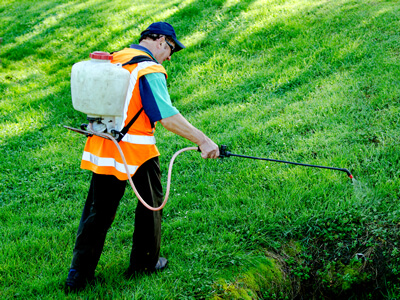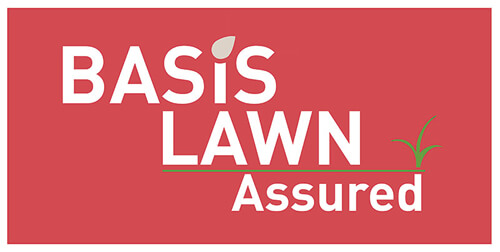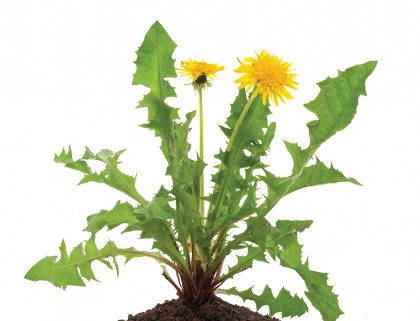Why do I need to kill the weeds in my lawn?
- There is a place in the garden for most plants. The lawn is not the place for flowering weeds
- Lawn weeds spread quickly if not managed correctly
- Over time, lawn weeds can outcompete grass gradually taking over the lawn
- Seeds from lawn weeds can spread into flower beds too
- Our weed control products are guaranteed safe for pets, people, and wildlife. Yes, that means bees too!

Is lawn weedkiller safe?
How to control difficult lawn weeds?
When should I treat lawn weeds?
What weed control is best for my turf?
Do I need a weed control company?
Lawn weed control briefly explained…
- Professional weed control products are fully licenced and guaranteed to be completely safe for everyone and everything that uses your garden
- DIY, ready to use, lawn weed control like Resolva or Weedol is not the same as the products used by professionals
- Specialist liquid lawn weed treatments contain concentrate that controls even the most difficult weeds
- Different active ingredients can be used to target different types of turf weeds
- Healthy, green, lawns, receiving the right nutrients, are likely to need less weed control

We are audited annually and conform to the
Amenity Standard
Is it safe to use weed killers on my lawn?
Yes, it is absolutely safe. As lawncare professional we are fully trained and certified to control weeds in your garden, whilst protecting your lawn grasses. We have access to more effective liquid plant control products than can be bought from a DIY store or garden centre. Everything we use is fully tested and licenced by government and it is guaranteed to be totally safe for gardeners, your family, pets, wildlife and even bees!
What is a lawn weed?
The definition of a weed is simple – any plant growing where it is not wanted could be classed as a weed. So, grass in your flowerbed or flower in your lawn could be weeds.
Are all turf weeds the same?
Lawns can be colonised by many different weeds, each with their own characteristic. Some may have a deep tap root like dandelions. The flowers of the daisies are easily recognised. Buttercups can have a creeping growth habit, quickly spreading through the soil. Weeds like yarrow, clover, speedwell and lesser trefoil are more challenging to control and this just won’t happen with DIY products available to the amateur gardener.
How often should we treat weeds in the lawn?
Different lawn weeds have different growth patterns. Flowering, seeding, and spreading at different times. Some weeds shut down growth earlier in the autumn or may become dormant in hot summer weather. Others start to grow much sooner in spring. For this reason, it is important to spray lawns with active weed control that contains the right ingredients, in the correct quantity, carefully following the instructions, at the right time of year for maximum effect.
Do all lawn weeds need the same weed killer?
Plants are affected in different ways by the plant control products we use in your garden. The active ingredients in selective weedkiller products affect different plant types in different ways. They might kill weeds by shutting down natural processes, to starve the plant. Or by accelerating growth hormones, killing a weed plant by causing it to grow itself to death. Choosing the correct product for the type of weed being controlled, and understanding the instructions is essential. Some weeds may be killed by one application, other may need more.
When should I apply weed killer to my lawn?
Plants need to be actively growing for weed control to be successful. It is often advisable to spray weedkillers early in the season, or soon after fertiliser has been applied to stimulate growth. Once the weed control is taken into the plant through the leaves and transported down to the roots it will begin to take effect. Professional weed control will however work even if the plant is almost dormant.
Does it matter if it rains after weed killer has been applied?
Professional products contain a ‘sticker’ which helps to hold the product on the plant leaf, providing significant resistance to damp conditions, after application has been completed.
Are 3 in 1 lawn treatments or weed and feed products any good?
Ready to use products like Weedol Lawn Weedkiller, Resolva, Vitax or Evergreen Complete 4 in 1 serve some purpose and contain chemicals that kill some weeds. They contain chemicals that can be used by any gardener. But they are nowhere near as effective at killing persistent weeds and achieving predominantly weed free lawns as professional products. Often their use does not follow environmental best practice guidelines. Guidance on weed control is that we should use as little as possible, as infrequently as possible, to target the problem weeds. Weed and feed products like Evergreen Complete 4 in 1 apply weed control to cover all of the lawn even if the whole lawn does not contain weeds. This method of control is not so good for the environment. It could be better for the environment to only spot treat individual weeds.
Will weed killer damage my grass?
Just like moss killer, or lawn fertiliser, if used incorrectly, lawn weed killer may kill more than just lawn weeds. A selective lawn weedkiller is designed just to kill the weeds in the lawn and not the grass. However, it is important that it is sprayed on grass in the correct conditions. If the conditions are not right, it may kill your lawn grass as well as your lawn weeds! Also, if the grass is too young, grown from seed recently sown, then it may be killed by the concentration of chemicals in Weedol lawn weedkiller, Vitax or complete 4 in 1 products like Evergreen Complete 4. It is very important that gardeners follow the instruction fully.
Professional lawn weedkiller versus DIY lawn weedkillers?
The main difference is the active ingredients and the strength of the products. Our Lawn Technicians are professionals and as such are trained, registered, and hold a NPTC qualification to use plant control products. They know what products to use for what weeds, in the correct quantity. This professional use is audited by the government Amenity Standard, and we are proud of our Basis Lawn Assured certification in the safe use and storage of plant control products.
How do professionals control lawn weeds?
- Everything we use in your garden is guaranteed to be safe for pets, people, and wildlife
- We know what active ingredients kills which weed types
- We use different products depending on which weeds are present in your garden
- Seasonal treatment methods mean our selective spray applications provide maximum weed control
- We know the size of your lawn and the exact quantity of plant protection product to use
- As licenced lawn care professionals we can access the best product for the job
- We use special additive concentrate to encourage the plant to absorb the weedkiller
- We apply exactly the right amount at the right time, so they are all used up by the plant and not lost to the environment
How to correctly control lawn weeds
- Identify what garden weeds are in the lawn grass and what their growth habits are
- Measure the lawn to know how much product to apply
- Select the right plant control product depending on active ingredients, the time of year, and the weeds being treated
- Use a good quality sprayer to ensure the correct dose is applied
- Calibrate the applicator to ensure exactly the right amount of lawn weed killer is used. Too little can sometimes help the weed build up a resistance to the product being used
Our Professional Lawn Treatment Plan is designed to deliver great results and take the strain out of caring for your lawn. All you have to do is mow and water in times of drought. We do the rest. Leave your lawn to us

Our professional lawn technicians are fully trained

Professional certification give your complete peace of mind

 Established 2016
Established 2016




